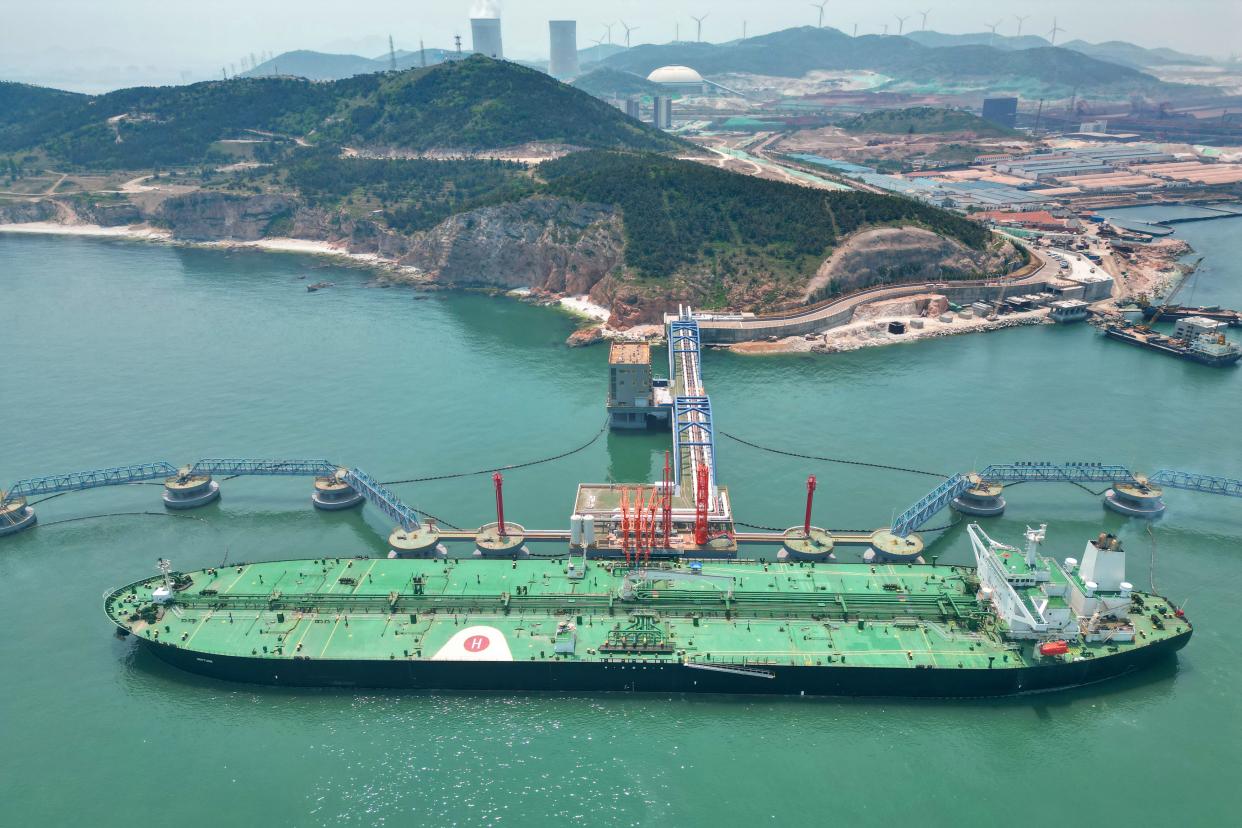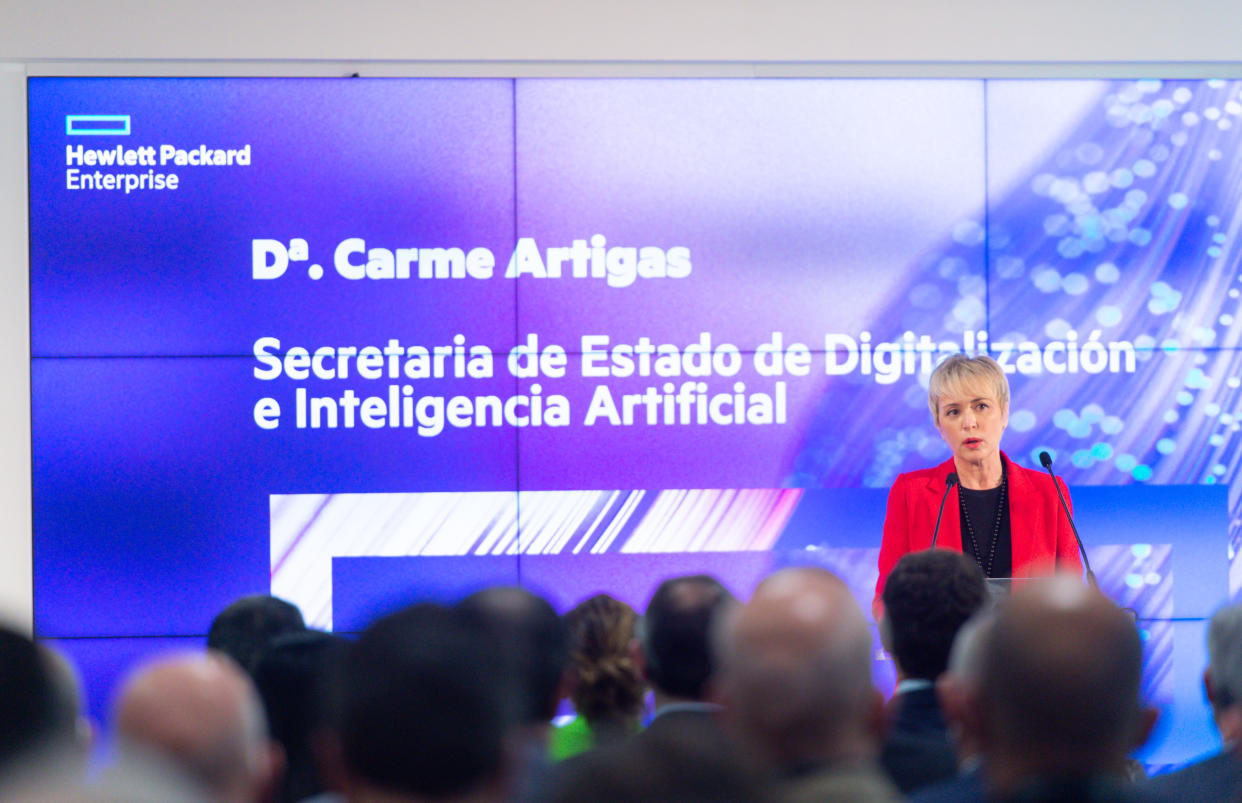Global supply chain is ‘still not stable,' HPE CFO explains
Enterprise-level hardware and software maker Hewlett Packard Enterprise Co. (HPE) reported earnings last week that missed Wall Street estimates, and HPE CFO Tarek Robbiati detailed how the global supply chain is still the biggest hurdle for the company.
"The supply chain globally across our industry is still not stable," Robbiati said on Yahoo Finance Live (video above). "It will take us a little bit of time to get to that point."
HPE — which was spun off from HP in 2015 to focus on servers, storage, networking, software and support — reported adjusted earnings per share of $0.44 during the second quarter, which missed analyst expectations by $0.01 and were down from $0.46 per share a year prior.
"We have to look back at how much dependence there was on a supply chain that was based in Asia and in China, in particular, and the fact that the supply chain is decoupling from Asia and from China," Robbiati said. "That obviously takes time."
COVID-related lockdowns have hampered supply chains around the world for more than two years. China, whose manufacturing sector accounted for nearly 30% of the world's total economic output in 2019, has a zero-COVID policy, meaning that its major cities can shut down at any point if officials are concerned about a rise in the number of new cases.
This was the case in Shanghai until recently, which served as a reminder that the pandemic issue is not resolved yet — especially since global coronavirus cases are ticking up again.
"We have been coming from decades where 40% of the global manufacturing capacity was in China," Robbiati said. "And that will have to find a new equilibrium and be a lot more distributed across various countries in the globe, in Europe, and also in Asia."

'You cannot expect decades to be reversed in a quarter or two'
HPE has already started making moves in that direction by opening a new factory in the Czech Republic.
The plant was built in order to make HPE's supply chain "geared for the future" by being both speedy and cost-efficient, Robbiati said. Still, the company doesn't expect to achieve stability in its supply chain until 2023, he added.
"Obviously you cannot expect decades to be reversed in a quarter or two," Robbiati said. "It will take us, I would say, a few quarters to navigate this and we're in the process of doing so, and so is the entire industry."
China wasn't the only macro factor weighing on HPE's supply chains. In its quarterly results, the company attributed lower unadjusted earnings to $126 million in charges related to the business's exit from Russia and Belarus.

Nearly 1,000 companies have ceased operations in Russia and Belarus in response to Russia's invasion of Ukraine. For many of these companies, that has meant taking on financial losses as a result.
Ukraine supplies about 50% of the world's neon gas, which is a key aspect of producing semiconductor chips, so the disruption is dealing another blow to an industry that HPE relies on.
Citi Research recently explained that "trade routes between China and the United States were seen as the center of the storm. But the epicenter of the stresses now seems to have now moved equally to Europe and the trade ties between Russia-Ukraine and the European Union. These linkages are significant given the natural complementarities between the two economies — Europe as a leading global manufacturer, and Russia and Ukraine as commodities and materials exporters."
Dani Romero is a reporter for Yahoo Finance. Follow her on Twitter: @daniromerotv
Read the latest financial and business news from Yahoo Finance
Follow Yahoo Finance on Twitter, Instagram, YouTube, Facebook, Flipboard, and LinkedIn
